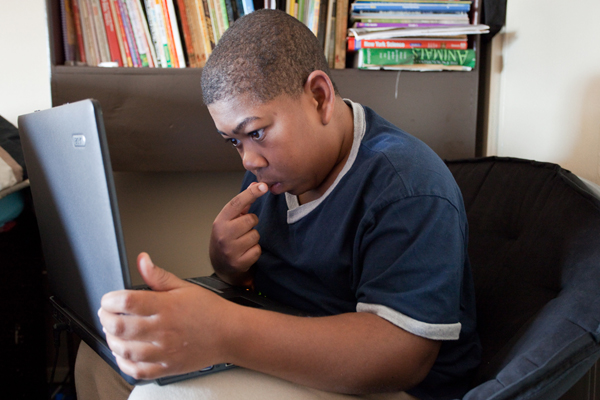
Photo by: Marc Fader
Darren, a student whose mother says he left Equality Charter School after required special education services were not provided to him. The school says it provides all mandated help.
On a recent October morning, as students moved between classrooms at the Equality Charter School, teachers and school leaders took up their regular hallway posts to wrangle the flow of adolescent traffic. One boy, Kintchen, was without his school uniform, prompting a gentle scold from the principal, JoAnn Myers. But speaking with a visitor, Kintchen took the long view. “Last year, a lot of kids got in trouble. This year, there’s more rules,” he said. “We know what to do so we don’t get in trouble.”
When the Equality Charter School, on the third floor of PS 160 in Co-Op City, the Bronx, opened its doors to sixth and seventh graders last year, with 141 rambunctious middle schoolers and a corps of 10 teachers and staff, it joined the growing universe of charter schools that comprise the broadest school reform movement in American history.
But at its location along the Hutchinson River Parkway, Equality’s experience hasn’t much resembled the theoretical debate among reform advocates, teachers unions, parents, and policymakers over the pros and cons of charters.
Instead, it’s been about how to create from scratch a disciplined environment, how to provide team-teaching while firing instructors who didn’t perform to standards and how to offer legally mandated services to special needs kids.
To these un-pretty problems, there were inelegant solutions, like the decision to hire as deans the husband of one co-founder and the fianc







